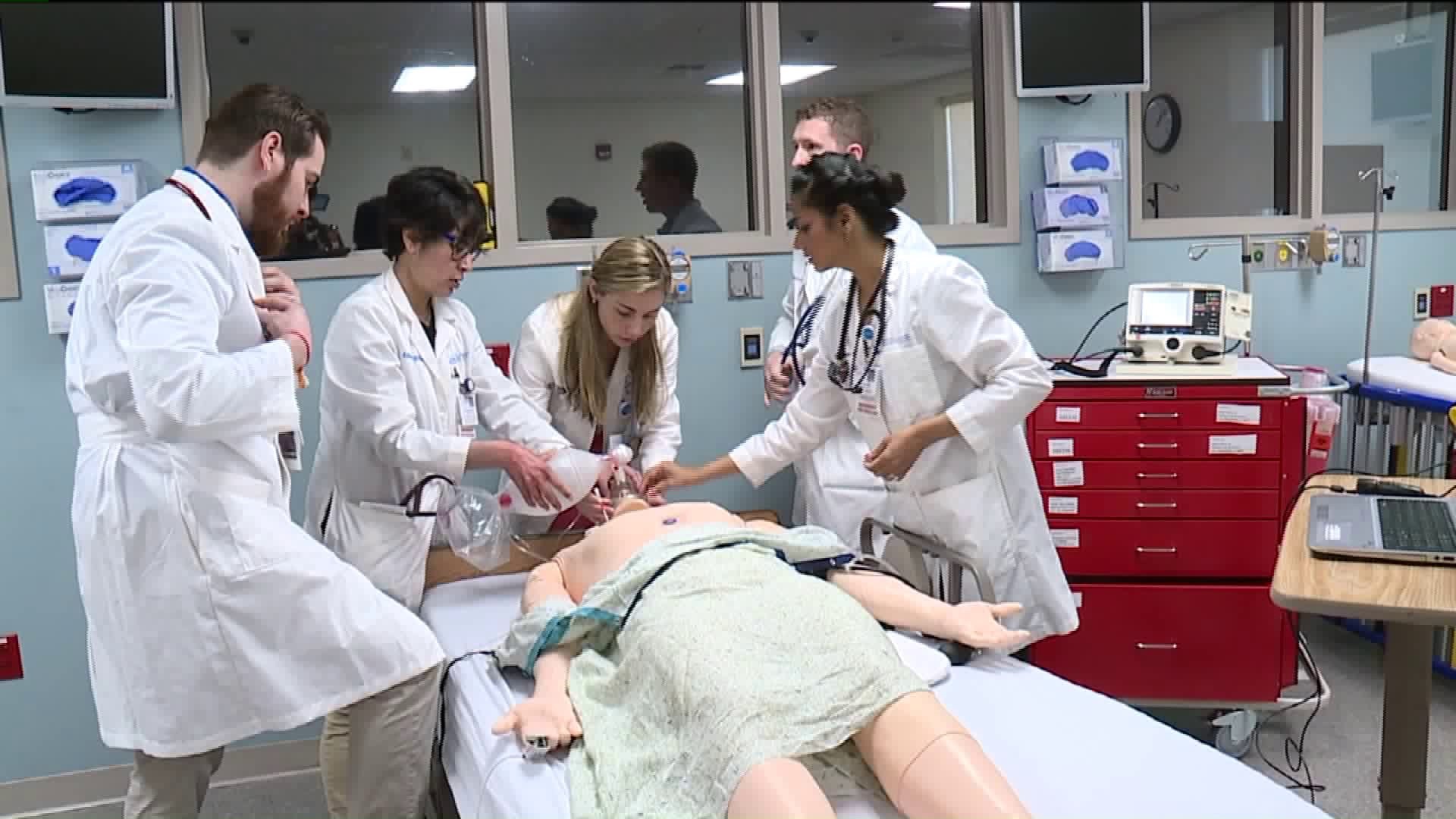GEISINGER MEDICAL CENTER -- When it comes to training doctors and other medical professionals, there's only so much they can read about practicing is an important part of the education.
Now Geisinger has a center dedicated to just that and we got to see how it all works during an open house last week.
When it's time for medical residents to practice what they've learned, there's only so much they can do on a real person. This could be the next best thing -- a simulation of what might happen if a patient's lung collapses.
The mannequin can blink, breathe, and has a heartbeat, at least for now.
On the other side of the one-way mirror is the voice of the mannequin and simulation technician Stanley Lovette. Lovette says software controls the mannequins; it's programmable for nearly any scenario.
"You saw pneumothorax, I programmed it and the residents worked through it. That's a common occurrence so it's good to practice," Lovette said.
This center is called GEMS, Geisinger Education and Medical Simulation Center, on the hospital system's campus near Danville.
Dr. Sandy Green is an interventional cardiologist and the center's medical director. He invited us in during an open house to show off its capabilities.
"It's the full range, anything a doctor might do, so endoscopy to laparoscopic surgery to cardiac catheterization to learning how to run codes when a patient dies," Dr. Green explained.
Emergency situations aren't the only situations that get the simulation treatment. There's a practice operating room and a simulated patient room.
Medical professionals can practice on airway trainers, IV trainers, even one that helps them with a lumbar puncture should they need to draw fluid from the spine for testing.
One life-like baby mannequin is about the size and weight of a real infant.
Classes and programs are run daily, but April Morgan, manager of curriculum, says doctors and other medical professionals can also make requests, for instance, if they want to teach something in particular, or practice a specific case.
"We will talk about their goals and what they want their learners to get out of it," Morgan said.
This is all an effort to make sure those learning are as confident as they can be before having to do the real thing.
"This is exciting for us," added Morgan. "It's a new building, we have a lot to offer, we're really excited."

